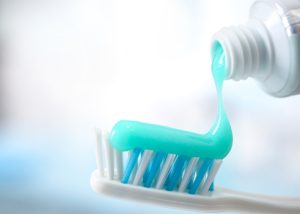

Your Guide to Dealing With Sensitive Teeth
If you’ve ever winced at the powerful zing of pain while sipping a hot coffee or biting into an ice cream cone, then you know the misery that sensitive teeth can bring. You’re not alone — this frustrating condition is more common than you think, and it plagues countless people just like yourself. But there’s good news! Relief is achievable, and faster than you might imagine. Read on to discover easy yet effective ways to say goodbye to teeth sensitivity and let us, your trusted Staten Island dentists, guide you back to enjoying your favorite treats without fear.
Tooth sensitivity can be caused by a variety of factors, including worn enamel, gum disease, and exposed tooth roots. To treat sensitive teeth, your dentist may recommend using desensitizing toothpaste, applying fluoride to the affected areas, or bonding resin to exposed root surfaces. Good oral hygiene practices such as regular brushing and flossing can prevent tooth sensitivity from occurring in the future.
What Causes Sensitive Teeth?
Enamel Erosion and Exposed Roots
When your gums start to recede or pull away from your teeth, it can expose the sensitive root surface underneath the enamel. This can cause significant pain and discomfort when eating or drinking hot or cold foods and beverages.
Several different factors can contribute to this issue, including aggressive brushing habits, gum disease, and natural wear and tear on your teeth over time. Tobacco use, acidic foods and drinks, and aging can all contribute to gum recession and expose the sensitive root surface of your teeth.
Enamel erosion can also be caused by bruxism, which is when you grind your teeth at night. Over time, this can wear down the enamel on your teeth and create sensitivity. Additionally, receding gums can lead to exposure of the tooth root and cause sensitivity as well.
Think of exposed roots like an old exposed wire in electronics. When the protective coating comes off the wire, it becomes more vulnerable to damage and can even pose a risk of electrical shock. Similarly, when your tooth’s protective enamel wears down or recedes and exposes the sensitive roots beneath, it leaves your teeth more vulnerable to damage and pain.
While some degree of gum recession is a natural part of aging, it’s important to take steps to prevent further damage wherever possible. Practicing good oral hygiene habits like brushing twice a day with a soft-bristled brush and flossing can help prevent gum disease and protect against further enamel erosion.
 Cavities and Gum Disease
Cavities and Gum Disease
Tooth decay, also known as cavities, can cause tooth sensitivity. When the bacteria in plaque produce acid that erodes the enamel, tiny holes form on the surface of teeth. As these cavities get deeper, they reach the sensitive layer of the tooth known as dentin, which contains small tubules that lead to the nerves of the tooth. This causes pain and sensitivity when consuming hot, cold, sweet, or sour foods and drinks.
Cavities don’t only occur in children or those who neglect their oral health routines. Adults are also prone to developing decay due to factors such as aging, dry mouth caused by certain medications or medical conditions, and eating disorders such as bulimia.
Gum disease is also a cause of sensitive teeth. When tartar builds up on teeth due to poor oral hygiene habits, it can cause inflammation and infection in the gums. This leads to a recession of the gum line, exposing the root surface of the tooth. The roots of teeth aren’t covered by enamel, but rather by a softer substance called cementum that’s easily eroded by acid and abrasion. As a result, exposed roots can lead to sensitivity.
How to Get Fast Relief
If you’re experiencing tooth sensitivity, there are several ways to alleviate the pain quickly. It’s important to note that these methods don’t treat the underlying cause of sensitivity, so it’s still crucial to visit your dentist to identify and address the root problem.
Several home remedies can provide immediate relief. Desensitizing toothpaste containing potassium nitrate or strontium chloride can block pain signals from reaching the tooth nerves. However, these pastes must be used consistently over time to see long-term results. Applying a small amount of clove oil or using a saltwater rinse can also temporarily relieve sensitivity.
Think of it like taking an over-the-counter pain reliever for a headache – it may alleviate the pain for a short period, but it doesn’t treat the underlying issue causing the headache.
Making changes in your eating habits can also help alleviate sensitivity. Avoiding acidic foods and drinks such as citrus fruits and carbonated beverages can prevent further erosion of enamel. Consuming more dairy products like milk and cheese can help neutralize the acid in the mouth and promote remineralization of teeth.
Home Remedies for Immediate Relief
- Saltwater Rinses: Dissolve half a teaspoon of salt in warm water and swish it around your mouth for 30 seconds before spitting it out. Repeat this process twice or thrice daily for best results.
- Clove Oil: Applying a drop of clove oil directly onto the sensitive tooth or gums can provide immediate relief due to its natural analgesic properties.
- Honey and Warm Water: Mix a spoonful of honey in warm water and swish it around your mouth for several minutes before spitting it out. The antibacterial and anti-inflammatory properties of honey can help reduce tooth sensitivity caused by gum disease or plaque buildup.
- Soft-Bristled Toothbrush: Replace your hard-bristled toothbrush with a soft one, as scrubbing too hard can cause further enamel erosion and exacerbate sensitivity.
- Avoid Acidic Foods and Drinks: Carbonated drinks, citrus fruits, wine, and coffee are highly acidic and can contribute to enamel erosion over time. Limit your consumption of these items or use a straw while drinking to minimize contact with your teeth.
- Chew Sugarless Gum: Chewing on sugarless gum helps stimulate saliva production, which washes away bacteria and neutralizes acids in your mouth.
While home remedies may provide temporary relief, they don’t treat the root cause of your tooth sensitivity. If you experience frequent or severe tooth sensitivity despite trying home remedies, make an appointment with your dentist to identify the underlying issue.
Remember that prevention is the key to maintaining good dental health. By following proper oral hygiene practices such as brushing twice daily with fluoride toothpaste, flossing regularly, and visiting your dentist for regular checkups and cleanings, you can prevent future dental problems and keep your teeth healthy for years.
Dental Treatments
If home remedies fail to relieve your tooth sensitivity, consult your dentist for professional treatment options. The treatments’ efficacy depends on the severity of your tooth sensitivity and the underlying cause.
If your teeth are sensitive due to enamel erosion or exposed roots, your dentist may apply fluoride gel or varnish to harden the enamel and reduce sensitivity. Alternatively, tooth bonding, which involves applying a resin material over the exposed roots, can also be an effective solution. For deeper cavities that lead to sensitivity, a dental filling is necessary to protect the tooth from further decay and reduce sensitivity.
In some cases, your dentist may also recommend root canal treatment if there’s no other option available to eliminate the sensitivity. The procedure involves removing the damaged nerve and pulp tissue inside the tooth and sealing it with a filling. Although root canals have garnered a reputation as a painful procedure, with modern anesthesia techniques, it’s relatively painless.
 Tips for Preventing Tooth Sensitivity
Tips for Preventing Tooth Sensitivity
Preventing tooth sensitivity requires some effort, but it can save you from pain and discomfort in the long run.
- Brush Gently: Brushing too hard or using bristles that are too stiff can wear away your tooth enamel, leading to sensitivity. Use a soft-bristled toothbrush and brush your teeth gently with small circular motions.
- Use Fluoride Toothpaste: Fluoride is known for strengthening the enamel on your teeth. Therefore, it’s an essential ingredient in preventing tooth sensitivity. Make sure to use fluoride toothpaste when you brush your teeth.
- Floss Daily: The area between your teeth is susceptible to plaque buildup, which can lead to gum disease and tooth decay. Make sure to floss between your teeth daily to remove plaque and food particles that brushing may miss.
- Be Cautious With Acidic Foods and Drinks: Acidic substances like citrus fruits, juices, and carbonated drinks can wear away the enamel on your teeth. Although you don’t have to completely avoid these foods, be sure to rinse your mouth with water after consuming them or use a straw when drinking them.
- Wear a Mouthguard: If you suffer from bruxism (teeth grinding), wearing a mouthguard at night can help protect your teeth from being worn down, which can cause tooth sensitivity.
When to Consult a Dentist
If you’re experiencing severe or prolonged tooth sensitivity, consult a dentist as soon as possible. Signs that indicate it’s time to see a dentist include:
- Pain When Eating Hot or Cold Foods: Tooth sensitivity is characterized by pain or discomfort when eating hot or cold foods/drinks. If the pain persists for more than a couple of days, it’s a sign that something is wrong with your teeth.
- Receding Gums: If you notice that your gums are pulling away from your teeth, exposing the roots, see a dentist. This condition can lead to tooth decay and sensitivity.
- Tooth Decay: If you have cavities or tooth decay, the dentin layer of your teeth will be exposed which could result in tooth sensitivity. In this case, consulting with a dentist quickly is key.
- Cracked Tooth/Filling: A cracked tooth or filling may not seem like a dental emergency until it starts causing tooth sensitivity.
- Worn Fillings: Fillings have a lifespan, too, and eventually wear down with time. Once they’re worn down, they can expose the nerves in your teeth leading to sensitivity.
Frequently Asked Questions
What is the best toothpaste for sensitive teeth?
So, you’ve got sensitive teeth, and you’re wondering which toothpaste to pick. Your first step should be to look for a toothpaste that’s been specifically designed for sensitive teeth. These kinds of toothpaste usually contain ingredients like potassium nitrate, which helps to block pain signals to the nerves in your teeth. Another ingredient to look out for is stannous fluoride, which can help strengthen the enamel on your teeth.
Ultimately, the best way to find the right toothpaste for your sensitive teeth is through trial and error. Don’t be afraid to try different brands and formulations until you find one that provides you with relief. And of course, talk to your dentist if your sensitivity persists or if you have any questions about which toothpaste will work best for you.
Can dental procedures cause or worsen sensitive teeth?
Yes, dental procedures can cause or worsen sensitive teeth. This is because some dental procedures involve removing the protective layer of enamel on your teeth, leaving them vulnerable to sensitivity. For example, teeth whitening treatments that use strong chemicals can remove enamel and cause sensitivity.
However, it’s important to note that not all dental procedures will result in sensitive teeth. Some cases may be due to underlying conditions like gum disease or tooth decay. It’s best to consult with your dentist if you’re experiencing sensitivity after a procedure or in general.
To prevent sensitivity caused by dental procedures, consider using desensitizing toothpaste before and after your appointment and informing your dentist about any existing sensitivities you have.
Don’t Deal With Tooth Sensitivity Any Longer
For those in Staten Island struggling with tooth sensitivity, contact our dentists today. We’ll work with you to get to the root of the problem and ensure you leave our office pain-free!


 Cavities and Gum Disease
Cavities and Gum Disease
 Tips for Preventing Tooth Sensitivity
Tips for Preventing Tooth Sensitivity